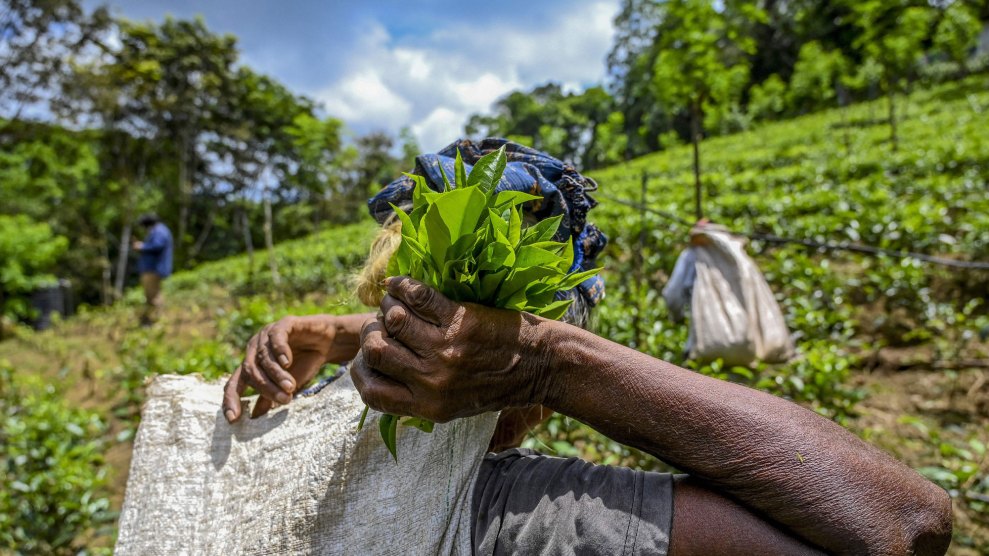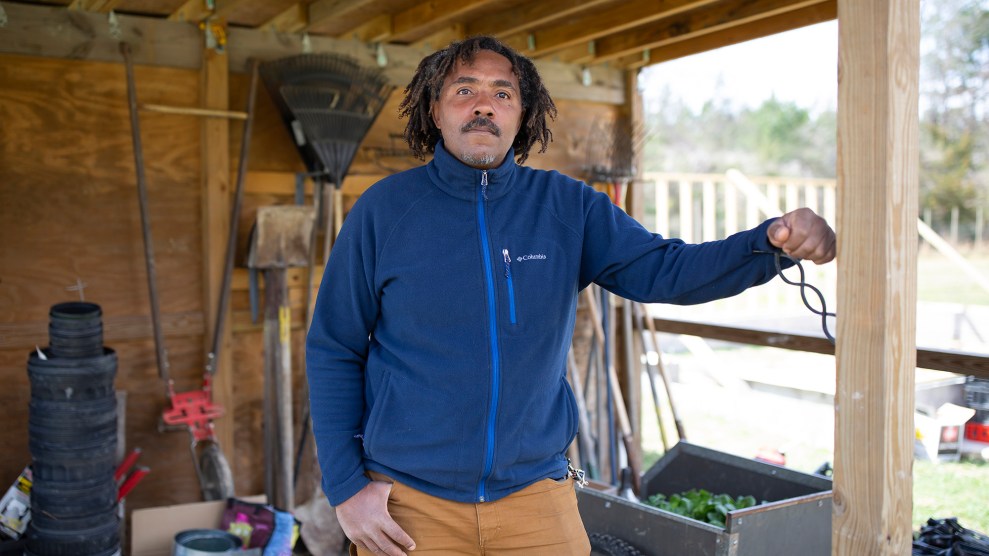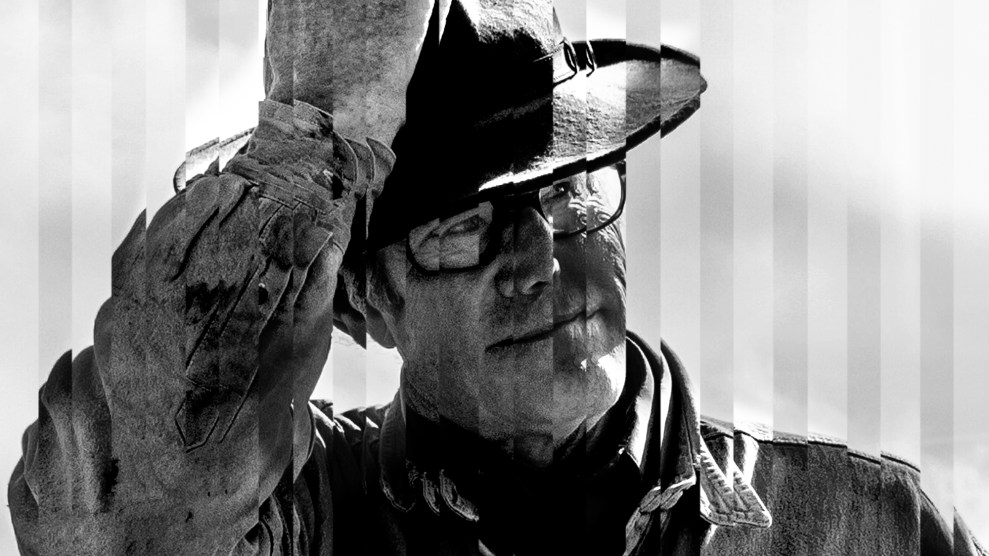
Sandro Rybak
During an appearance on Steve Bannon’s podcast in January, Noor Bin Ladin—right-wing influencer, Osama’s niece—said she had a message for Klaus Schwab, the founder and executive chair of the World Economic Forum: “I don’t want to eat the bugs.”
This requires some backstory: In 2020, Schwab and the WEF introduced a plan called “The Great Reset.” A response to the disruptions caused by the pandemic, the proposal calls for governments and business leaders to fix capitalism by moving to more socially responsible and equitable practices. From its inception, “The Great Reset” seemed gift-wrapped for conspiracists. A single infographic includes the buzzwords “artificial intelligence,” “blockchain,” “3D printing,” “agile governance,” and “5G” with arrows pointing incoherently between them.
For Bin Ladin and others on the right, the proposal was proof of their doomsday narrative that global elites planned the pandemic to usher in an age of techno-authoritarian rule. In this fever dream, Klaus Schwab is a closet communist and Covid vaccines are overhyped. Of particular concern has been one idea: The global elites want to take away your meat. The WEF does encourage eating less meat to reduce carbon emissions and has published articles about edible insects on its website. But this has led conspiracy theorists to claim that Schwab and his cronies plan to usher in a new meatless world, forcing people to obtain their protein from bugs. Some even hint recent fires at egg facilities were arsons.
Any conspiracy theory needs a kernel of truth to give the lies their power. A book called The Eggs Benedict Option tries to provide this: It offers a sophomoric critique of global capitalism’s harm to our food systems as an explanation for half-baked and incoherent solutions you’d expect from a right-wing populist—often stumbling into paranoia along the way. The book reads as if Tucker Carlson tried to write The Omnivore’s Dilemma.
The Eggs Benedict Option takes its name from former The American Conservative senior editor Rod Dreher’s 2017 book, The Benedict Option, which was an appeal to Christian conservatives to flee from an irredeemably secular mainstream. Eggs Benedict, meanwhile, urges an exit from a food system run by “enemies of human freedom,” who “want you to be fat, sick, depressed, and isolated, the better to control you.” (Noor Bin Ladin wrote the foreword.) It has hovered near the top of Amazon’s bestselling Agricultural and Food Policy list and its author was one of the stars of Carlson’s cartoonishly macho 2022 documentary, The End of Men.
Released in the summer of 2022 by Antelope Hill Publishing, best known for translations of Third Reich texts, The Eggs Benedict Option is chiefly a treatise on food, farming, and nutrition. Written under the pseudonym “Raw Egg Nationalist,” the book could be mistaken at times for a hippie manifesto. It calls for a backyard garden revolution and a return of bison to the plains. It catalogs the sins of Monsanto and bemoans livestock factory farming as “an abomination that cries to the heavens for redress.” REN criticizes monoculture farming for the disastrous effect it’s had on soil health and recommends his readers eat with the seasons.
REN stitches together these legitimate gripes with fearmongering about government meat confiscation and calls to white nationalism. A “massive demographic change” threatens to make America “totally unrecognizable,” REN warns. If “Western nations wish to survive,” he writes, they must “treat the invasion” of migrants to the global North, specifically Africans, “as the hostile act that it is.” It’s only in “the rare case of agriculture,” REN writes, that “diversity really may be our greatest strength.”
He presents right-wing populists—in Brazil and the United States —as the only hope against civilizational destruction. Yet if one looks closely this falls apart. Brazilian President Jair Bolsonaro is hard to paint as a hero of naturalism after he helped trample the Amazon rainforest for industrially farmed cattle and soybeans.
For Raj Patel—a professor at the University of Texas at Austin and longtime critic of both industrial agriculture and global financial institutions like the WEF—the right-wing embrace of organic and local food and farming isn’t surprising. The back-to-the-land movement has long enchanted eco-fascists, libertarians, and others who are skeptical of the government and corporations. When Patel moved to Austin almost a decade ago, he remembers people “from the Infowars world” saying, “You don’t like Monsanto either? You should definitely come talk to this guy, Alex Jones.”
Yet far-right foodies, Patel argues, are “missing the bigger picture,” especially the plight of workers in the food system, who can’t afford to pay $7 for a dozen of the free-range eggs they bring to market. “The racial purists are quite happy to ignore the long chain of hands of people of color that go into making their organic food,” he says.
For Patel, the important differentiation between sides whose critiques may share superficial similarities is not asking who you are fighting against, but instead “What is it you’re fighting for?” A vision “of a world in which everyone gets to eat,” Patel continues, “looks rather different from the fascist one.”













